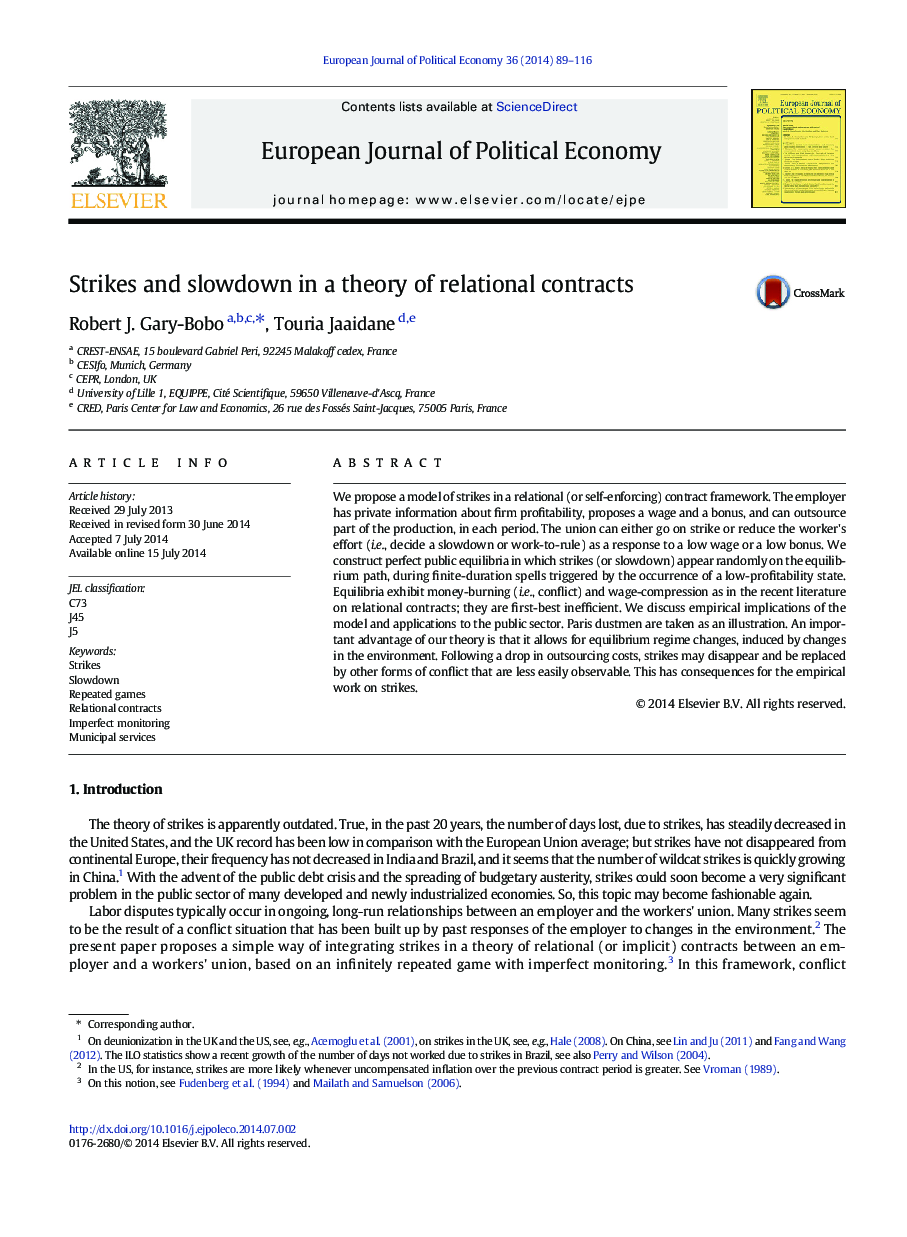| کد مقاله | کد نشریه | سال انتشار | مقاله انگلیسی | نسخه تمام متن |
|---|---|---|---|---|
| 5068061 | 1476890 | 2014 | 28 صفحه PDF | دانلود رایگان |
- Strikes are a “money burning” phenomenon in a relational contract framework.
- Strikes randomly appear on the equilibrium path of a repeated game.
- Strikes may disappear in some environments, but conflict does not disappear.
- Slowdown and work-to-rule are strategic substitutes to outright strikes.
We propose a model of strikes in a relational (or self-enforcing) contract framework. The employer has private information about firm profitability, proposes a wage and a bonus, and can outsource part of the production, in each period. The union can either go on strike or reduce the worker's effort (i.e., decide a slowdown or work-to-rule) as a response to a low wage or a low bonus. We construct perfect public equilibria in which strikes (or slowdown) appear randomly on the equilibrium path, during finite-duration spells triggered by the occurrence of a low-profitability state. Equilibria exhibit money-burning (i.e., conflict) and wage-compression as in the recent literature on relational contracts; they are first-best inefficient. We discuss empirical implications of the model and applications to the public sector. Paris dustmen are taken as an illustration. An important advantage of our theory is that it allows for equilibrium regime changes, induced by changes in the environment. Following a drop in outsourcing costs, strikes may disappear and be replaced by other forms of conflict that are less easily observable. This has consequences for the empirical work on strikes.
Journal: European Journal of Political Economy - Volume 36, December 2014, Pages 89-116
